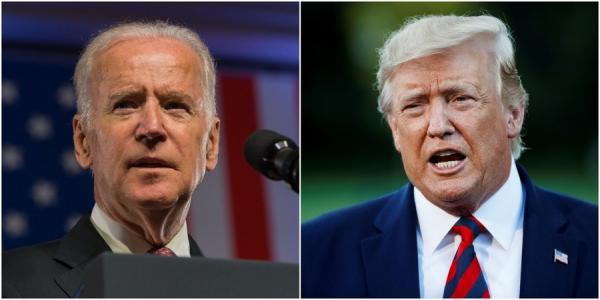BY NIKHILA NATARAJAN
New York– In a 107 page research report headlined on the final bend of the US election, a cross disciplinary team of 11 Citigroup economists are urging investors to fasten seatbelts for a wild ride that could include what they call an ‘October Surprise’ that potentially upends the race like it did in 2016 and are warning of a complicated terrain for at least 60 days post-election.
The US presidential election takes place Tuesday, November 3, 2020 – that’s exactly 47 days away.
The context to the 60-day sunset clause in the Citi report on “complications” comes from the checks and balances of Constitutional and federal law in the US. Even if the election is messy and contested, the US will have a president by Inauguration Day which falls on January 20, 2021.
Among six permutations with varying degrees of likelihood, a Biden Presidency, Republican Senate and Democrat-controlled House is “most likely” according to Citi Research calculations. A “very slim path” exists for a Democratic takeover of the entire political superstructure: A Biden Presidency, Democratic Senate and a Democratic House. “Highly unlikely” is how Citi describes the potential for a complete Republican takeover of White House, Senate and House.
In Citi’s “most likely” scenario that Biden becomes President, Democrats take the House and Republicans retain control of the Senate, the bank’s research team thinks Biden will lean towards executive orders and regulation to bring on big policy changes.
The ‘Global Multi Asset View: Road to the White House 2020′ report by Citi Research describes Donald Trump’s America First strategy as a much bigger risk for the US and the global economy than Joe Biden’s aAmerica in Alliance’ strategy.
“The gap between Trump and Biden in the polls and on prediction websites has narrowed recently, and there is the risk that polls, although greatly improved since 2016, could be failing to capture the true sentiments of would-be voters”, says the report, steering clear of predicting winners and instead laying out a broad range of risks for markets and economies leading up to and following the elections.
Complications on or after voting day are baked into the Citi economists’ scenario planning for investors. “Indeed, a clear winner for the Presidential election or for select Congressional elections may not be determined on November 4, with challenges and proceedings extending by as many as two months beyond the November 3 Election Day. This leads to several potential tail risks.”
Fleshing out the rationale behind the granular detailing, Citi explains: “The US accounts for about 25 per cent of per cent of the global aggregate indicator for GDP growth. Therefore, US growth prospects matter for global growth simply by arithmetic.”
A second term for Trump, according to Citi analysts, would look very much like the last four years and likely double down on policies that aworked’. The warning for markets is clear. “Expect continued policy unpredictability, potential expansion of trade wars abroad, and continued social fragmentation and political polarization domestically.”
A Biden presidency is labeled “Back to the Future”. Citi’s view is that Biden would return America to traditional governance and heavy infrastructure spending.
“An olive branch would be extended to foreign allies, but China would be kept at arm’s-length. Manufacturing, infrastructure-related, green energy, and tech sectors might flourish, while financial and fossil fuel sectors might come under pressure. Social unrest may not be resolved quickly, but there would be a focus on greater equity.” (IANS)














